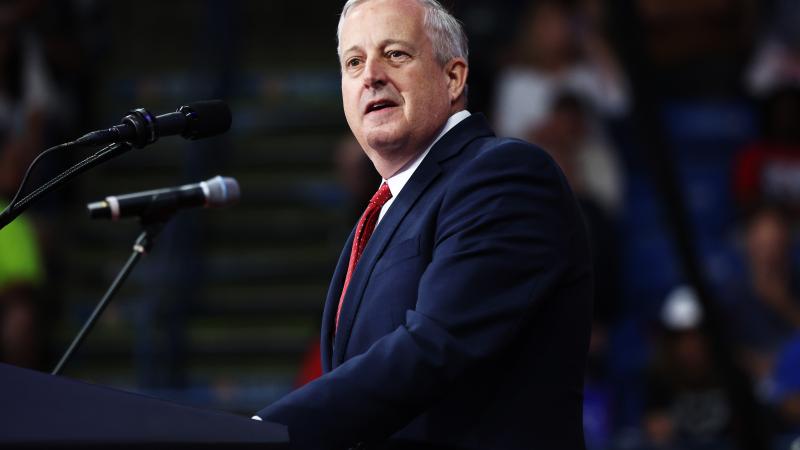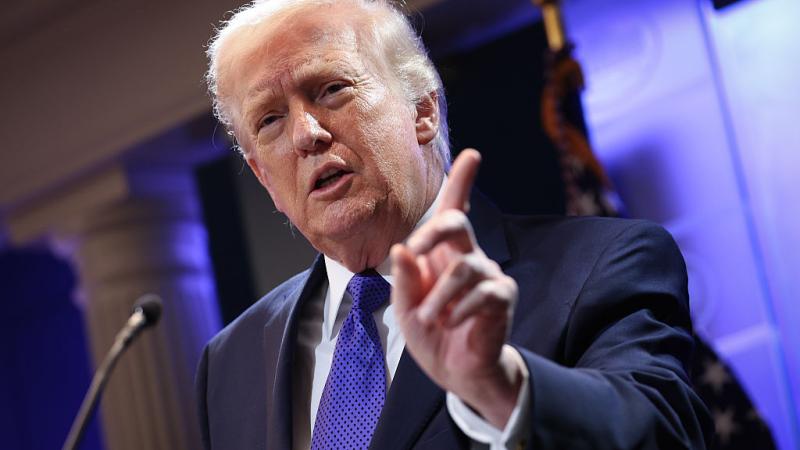Week before congressional certification of election, GOP House members tee up final challenge
Alleged "constitutional violations by key states" propelling challenge.
A group of Republican representatives is signaling their intent to mount a last-ditch challenge to the 2020 election leading up to the official congressional certification of the election results next week.
On Wednesday, Jan. 6, a joint session of Congress will meet to log the certificates of ascertainment submitted by each state and officially record the election results in the Congressional Record.
Yet multiple GOP representatives have publicly affirmed that they will be challenging those votes, citing what they say are irregularities and unconstitutional arrangements that have called into question the integrity of Joe Biden's putative victory in the race.
Among the challengers is Mo Brooks, who represents Alabama's 5th Congressional District. Brooks originally indicated his intent to challenge the certification in early November. "There's no way I'll vote in the House to ratify the Electoral College votes of states where illegal votes distorted the will of the people in those states who voted legally," he wrote on Twitter at the time.
In an interview with the Birmingham News earlier this month, Brooks reiterated that intent, arguing that Joe Biden "was the largest beneficiary of illegally cast votes in the history of the United States."
"And I can either ratify that illegal vote system," he continued, "or I can object to it, in hopes that our election system will become more secure in future elections."
In a letter to congressional leaders earlier this month urging an investigation of the election results, Brooks cited "countless incontestable examples wherein governors, election officials, and judges altered states' election procedures in violation of the Constitution's Election Clause."
The letter, which was signed by 18 other GOP House members, asked for Capitol Hill leaders to "hold all evidentiary and other hearings to fully investigate and probe the anomalies of the 2020 general election."
Joining the effort is Florida Rep. Matt Gaetz, a vocal supporter of President Trump for several years who has been in Congress since 2017.
"I'm joining with the fighters in the Congress, and we are going to object to electors from states that didn't run clean elections," Gaetz told the Turning Point USA Student Action Summit earlier this month.
In North Carolina, meanwhile, two politicians — Rep. Ted Budd and Representative-elect Madison Cawthorn — have pledged to challenge the Jan. 6 process.
On that date, "I will be contesting the election," Cawthorn said earlier this month at the Turning Point summit. Cawthorn is set to be the youngest member of Congress in over five decades as well as the youngest Republican ever elected.
"Not doing this to help my career in Washington, in fact this will most likely harm it," Cawthorn wrote of the announcement. "But no one should go to Washington as a career. Go there to serve the people."
Budd, meanwhile, wrote a letter to the Republican members of the North Carolina House delegation. Noting that "the people of North Carolina chose President Donald Trump to be reelected," Budd urged, "We should not allow the lack of election integrity in other states [to] deprive us of the president that we voted for."
Multiple swing states since last month have been at the center of prolonged controversy regarding allegations and accusations of illegal voting, unconstitutional election rule changes, and mail-in ballot fraud.
Efforts to dispute and delay election results by the Trump campaign and other challengers have largely been shot down by courts, including a major attempt earlier this month by Texas and over a dozen other states hoping to delay the certification of results in several swing states.
A challenge to the certification process — which would need to be accompanied by a senator's signature to be successful — would require both houses of Congress to return to their respective chambers to debate the matter. Both the House and the Senate would have to agree to toss out a state's votes.
Republicans currently control the Senate, while Democrats hold a majority in the House.
Democratic politicians in the past have made motions to challenge election certifications in Congress — after George W. Bush's two victories, for example, as well as Donald Trump's following the 2016 election — though none came to fruition.














